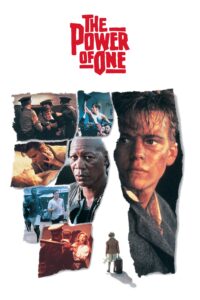Ever since Max Steiner wrote the first completely original score Symphony of Six Million in 1932, composing has been an essential part of the filmmaking process. The medium of music for film has given a platform to some of the most esteemed musicians of the modern world and allowed them to fully harness the storytelling power of music. One of the most prolific composers still working today is German born, multi-instrumentalist, Hans Zimmer. Ever since his first solo score in 1987, Zimmer has helmed a career comparable to none. But it wasn’t just sheer luck and talent that achieved Zimmer the status he holds, we’re taking a lens into the career of Hans Zimmer and presenting 5 lessons we can learn from the life and work of one of Hollywood’s greatest.
Embrace Change
Despite his skills on a plethora of instruments, Zimmer was one of the first big names in film composing to adopt the new technologies that arrived with the advent of the modern computer. He joined the likes of John Carpenter and Vangelis to embrace the limitless possibilities that computers brought to the creative process.
Although Zimmer’s scores usually end up sounding much more on the classical side than his aforementioned contemporaries, computers still play a huge role in Zimmer’s composition process.
Find Your Perfect Partner
Scorsese and DeNiro, Peanut butter and Jelly, Nolan and Zimmer. Some pairings just work. Hans Zimmer’s working relationship with Christopher Nolan has produced some of the most iconic and era defining soundtracks of the past 15 years.
Finding a contemporary whose creative vision aligns with your own has proven time and time again to be one of the best formulas for executing your strongest work.
Don’t Be Predictable
 Throughout his career, Zimmer has continued to surprise us, just as we thought we could predict his next move. Because of his aforementioned association with Christopher Nolan, we thought a Zimmer soundtrack was guaranteed to be present on Nolan’s much anticipated 2020 thriller, Tenet.
Throughout his career, Zimmer has continued to surprise us, just as we thought we could predict his next move. Because of his aforementioned association with Christopher Nolan, we thought a Zimmer soundtrack was guaranteed to be present on Nolan’s much anticipated 2020 thriller, Tenet.
However news soon broke that Zimmer had passed on the project to instead work on Denis Villeneuve’s Dune, due to his love of the source material. Breaking away from such a tried and tested formula may seem a risky move but in the end it led him to receiving his first Academy Award since 1995.
Experience Trumps Training
Zimmer has no formal training as a musician, his incredible musical ability is self taught and creatively drawn from a personal place. He never let this be a barrier for him and instead spent years experimenting with different sounds and techniques until he found, and continued to develop the signature style and flair that has won him countless awards and international acclaim.
Chase Authenticity
 The world of music for film is so entrenched in cultural influence that it’s often important to navigate the creative process with respect and a willingness to learn. Throughout his career, Zimmer has been tasked with creating scores that draw from places far further than his German origins.
The world of music for film is so entrenched in cultural influence that it’s often important to navigate the creative process with respect and a willingness to learn. Throughout his career, Zimmer has been tasked with creating scores that draw from places far further than his German origins.
For his score of the 1992 film The Power Of One, Zimmer travelled to Africa in order to use African choirs and drums. For The Lion King he wanted to travel to South Africa for the same reason but was unable to due to the Apartheid government’s disliking of The Power of One. He also travelled to Japan to learn more about Japanese Samurai culture for The Last Samurai.
Always immersing himself into the culture he is taking influence from and chasing authenticity has ensured his work and has always been well received by audiences around the world.
Now of course there is no certain formula to achieve the heights that Zimmer has, but we lose nothing by taking inspiration from such a decorated career. That’s our advice, but what about his? We’ll leave you with some words of wisdom from the man himself.
“Just write. Lock yourself away in a room and write. Keep writing and find yourself through that.”
Image source : https://www.justfocus.fr/cinema/dune-hans-zimmer-veut-faire-quelque-chose-de-different.html







